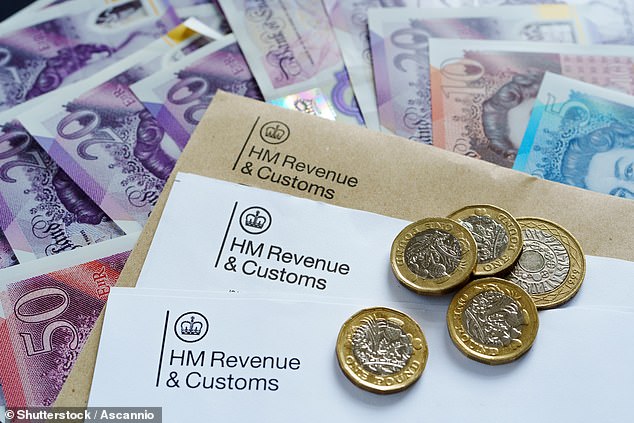Bereaved wealthy families are likely to see a crackdown on their inheritance tax payments this year amid claims they could have underpaid by millions of pounds.
HM Revenue & Customs believes families could owe as much as £325million, which it is currently investigating, according to accountancy group UHY Hacker Young.
This figure, from the tax year to March 2024, could be the result of mistakes made when declaring probate – where an executor calculates the total value of an estate for HMRC.
IHT is levied at 40 per cent on an estate worth more than £325,000. Under this threshold there is typically no tax.

Those who leave property to direct descendants have an extra allowance of £175,000 exempt from IHT.
UHY Hacker Young said IHT probes are set to increase.
But an HMRC spokesman said: ‘Our forecasts show more than nine in ten estates won’t have IHT to pay in the coming years.’
Inherited pensions: Upheaval and ‘double tax’ hit of up to 70.5%
The Government’s plan to make pensions liable for inheritance tax like other assets such as property, savings and investments prompted many questions from readers following the announcement in the Budget, writes This is Money pensions editor Tanya Jefferies.
The change doesn’t come until April 2027, but many people who have used pensions as an estate planning tool will want to review existing arrangements well in advance.
Some are looking to cash in as much of their pensions as possible while avoiding a big income tax bill, or gift out of surplus income which remains inheritance tax free providing you can afford it.
Others are deciding whether to leave more or all of their estate to spouses – who can still benefit from estates free of inheritance tax – instead of their children to delay and minimise the eventual bill.
Since the pension freedom reforms in 2015, retirement pots are treated generously by the taxman when people die, especially if that is before age 75 when they are usually tax free.
But there are a few tricky rules to be aware of especially on large funds. We have a full rundown on how inherited pensions are taxed at present here, because this remains relevant for the next two and a bit years.
The Government says it is ‘removing the opportunity for individuals to use pensions as a vehicle for inheritance tax planning’ by bringing unspent pots into the scope of inheritance tax.
However, financial experts warn its plans mean the richest families, where beneficiaries pay the highest rate of income tax, face a ‘double tax’ hit of up to 70.5 per cent.
Meanwhile, discretionary death benefits are also going to be brought into estates for inheritance tax purposes from April 2027.
Steve Webb, former Pensions Minister and This is Money’s retirement columnist, believes these changes could lead to ‘massive bureaucracy and delays for grieving families’.
Webb, who is now a partner at LCP, says: ‘People will need to know which pension schemes to contact, will have to rely on the efficient administration of pensions – with the whole process on hold until the slowest scheme has replied – and then potentially wait months more before death benefits and pension balances can be released by the scheme.’



